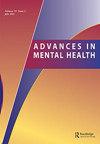By helping others we help ourselves: insights from peer support workers in substance use recovery
IF 1.7
Q3 PSYCHIATRY
引用次数: 7
Abstract
ABSTRACT Objectives Peer support is built upon the premise that shared life experiences benefits both the helper and the receiver. This relationship has been linked to an increase in practical knowledge of addiction and recovery, empowerment, hope, and community connectedness. Much research on peer support is geared toward the effectiveness of the intervention for the consumer. Less is known about the role of this relationship in the recovery of the workers themselves. Method This qualitative study explored the experience of recovery in substance use peer support workers using in-depth semi-structured interviews of 10 individuals who were employed as peer support workers in community-based roles. Thematic analysis was used to investigate the peer workers experience in the dual role of helper and consumer of recovery support. Results While none of the peers interviewed expected to benefit from helping, all reported this experience to be not only meaningful but also to have a positive impact on their recovery. Providing peer support to others strengthened the workers' ability to maintain personal recovery by keeping them connected to communities of support, providing opportunities to be of service, allowing them to pay forward what had been given to them, and a sense of accomplishment in being a part of the recovery of another individual. Discussion This study highlighted that helping others is a benefit to both the recovery of peer support workers and their personal lives, while recognising the need to separate personal recovery efforts from helping.通过帮助他人,我们帮助了自己:来自物质使用恢复的同伴支持工作者的见解
同伴支持建立在共同的生活经历对帮助者和接受者都有益的前提下。这种关系与成瘾和康复、赋权、希望和社区联系的实践知识的增加有关。许多关于同伴支持的研究都是针对消费者干预的有效性。人们对这种关系在工人自身康复中的作用知之甚少。方法采用半结构化访谈法对10名社区同伴支持工作者进行深度访谈,探讨物质使用同伴支持工作者的康复体验。本研究采用专题分析的方法,探讨同伴工作者在康复支援中扮演帮助者和消费者双重角色的经验。结果:虽然接受采访的同龄人中没有人期望从帮助中受益,但他们都表示,这种经历不仅有意义,而且对他们的康复有积极的影响。为他人提供同伴支持,通过保持他们与支持社区的联系,提供服务的机会,使他们能够付出给予他们的东西,以及成为另一个人康复的一部分的成就感,从而加强了工人保持个人康复的能力。本研究强调,帮助他人对同伴支持工作者的康复和他们的个人生活都有好处,同时认识到需要将个人康复努力与帮助分开。
本文章由计算机程序翻译,如有差异,请以英文原文为准。
求助全文
约1分钟内获得全文
求助全文

 求助内容:
求助内容: 应助结果提醒方式:
应助结果提醒方式:


